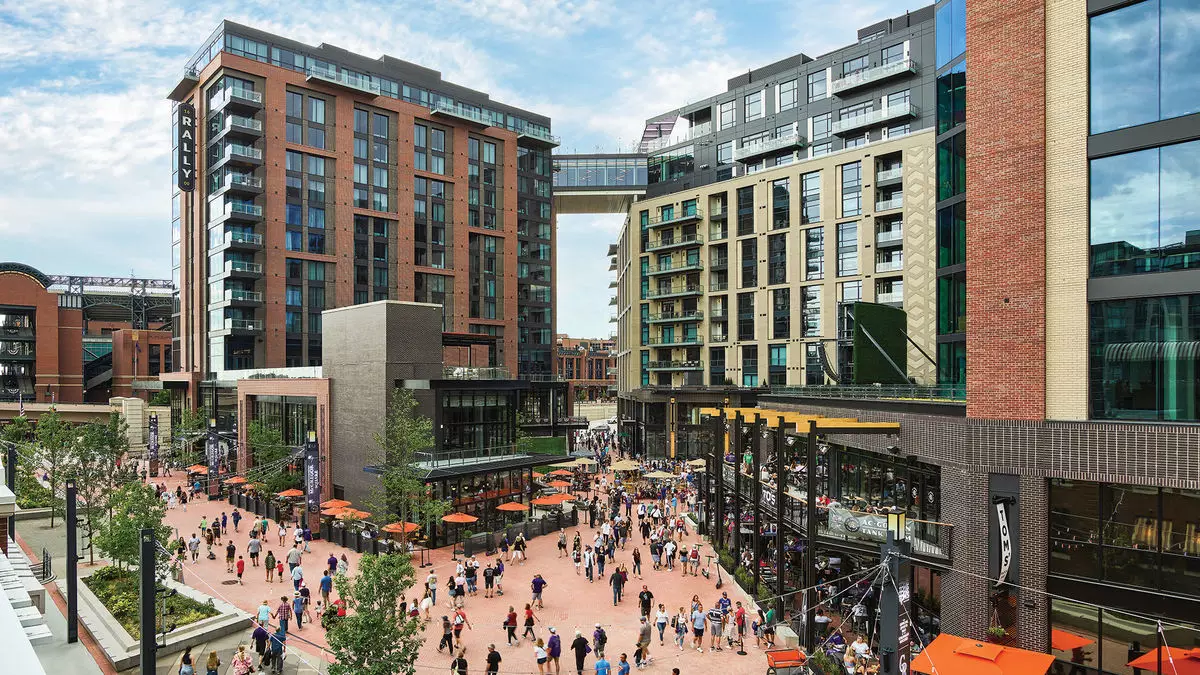In a thrilling convergence of two seemingly distinct industries, the hospitality sector is finding lucrative opportunities in the sports tourism market. This intersection, aptly termed “sportspitality,” has been reshaping how fans engage with their favorite teams and venues. An exemplary case is the upcoming visit of Major League Baseball’s New York Yankees to Denver, alongside the Colorado Rockies, during Memorial Day weekend. This event is set to transform The Rally Hotel at McGregor Square into a bustling hub for both Rockies supporters and dedicated Yankees fans, proving that enthusiasm for the game knows no geographical bounds.
Walter Isenberg, CEO of Sage Hospitality Group, highlights an evolving trend where sports team owners venture into real estate adjacent to stadiums. This strategy not only maximizes the potential of locally dedicated fans but also attracts tourists who are passionate about sports, enriching the local economy considerably. The allure of the Yankees alone promises to fill hotel rooms and local establishments, as this global fanbase travels to witness the iconic team play.
Beyond the Game: Creating Year-Round Experiences
The Rally Hotel, operating since 2021, exemplifies how thoughtful design can cater to loyal sports fans while also ensuring that the venue is appealing throughout the year. Its features, from baseball-themed art to a minibar stocking nostalgic game-day snacks, make it much more than just a place to rest. What truly sets it apart is its dual role—as both an official hotel for Rockies fans and a multifunctional space open to everyone.
Isenberg emphasizes the need for these venues to transcend their sporting affiliations in order to maximize their potential. By hosting diverse events, such as movie nights and yoga sessions, the hotel can maintain a steady stream of visitors even when the Rockies are away. This commitment to providing a multifaceted experience is essential in transforming the stadium vicinity into a year-round destination, pushing the boundaries of traditional sports tourism.
The Economic Implications of ‘Sportspitality’
The sportspitality model emerges not solely as a novel marketing strategy but also as a formidable economic engine. Sports-related travel is anticipated to expand drastically, according to market insights projected by research firms. Major franchises are now recognizing the substantial financial benefits associated with staking a claim in this lucrative tourism sector. Isenberg succinctly points out that these developments serve a dual purpose: they attract new fans and enhance attendance at games, thus enriching the team’s financial landscape.
With hotels positioned near stadiums, they possess a competitive advantage that translates into increased room rates and occupancy. As Matt Traub from SportsTravel points out, the fundamental real estate mantra of “location, location, location” becomes even more critical in this context. The strategically advantageous positioning fosters lucrative relationships between hotels and sports teams, benefiting both parties in the long run.
Innovative Examples Leading the Way
Beyond Denver, several pioneering developments reflect the growing enthusiasm for sportspitality. The Battery Atlanta, connected to Truist Park and developed by the Atlanta Braves, combines retail, dining, and lodging—all within steps of the stadium. This reuse of space not only provides convenience for fans but also promotes a lively environment that thrives 365 days a year.
Looking forward, organizations like Sage Hospitality Group are poised to expand their reach with more such properties. Upcoming ventures such as the Shinola Hotel in Indianapolis signal an ongoing commitment to integrating sports with hospitality on a grand scale. The hotel, which will connect to Gainbridge Fieldhouse via a pedestrian skybridge, exemplifies how modern hospitality can strategically engage with avid sports fans.
Forging New Paths in College Towns
The sportspitality concept is also expanding its footprint in college towns, as evidenced by the recent collaboration between Travel + Leisure Co. and Sports Hospitality Ventures. Their initiative, Sports Illustrated Resorts, aims to create sports-themed resorts near universities with passionate fan bases. By embracing local culture and fostering connections with universities, these resorts aim to capitalize on the growing interest in sports-related travel, potentially drawing millions of visitors eager to experience the environment surrounding college athletic competitions.
With travel surveys indicating that Americans undertook an unprecedented number of sports-related trips in 2023, the opportunity for hotels and resorts to innovate in this burgeoning market is monumental. The integration of services and amenities tailored specifically to sports fans, paired with strong community ties, positions these resorts to thrive exceptionally well.
The symbiotic relationship between sports and hospitality—where excitement and fan engagement drive economic growth—marks a thrilling new chapter in both industries. The future is bright for sportspitality, and as developments unfold, they will continually reshape our understanding of what constitutes a dynamic visitor experience.


Napsat komentář